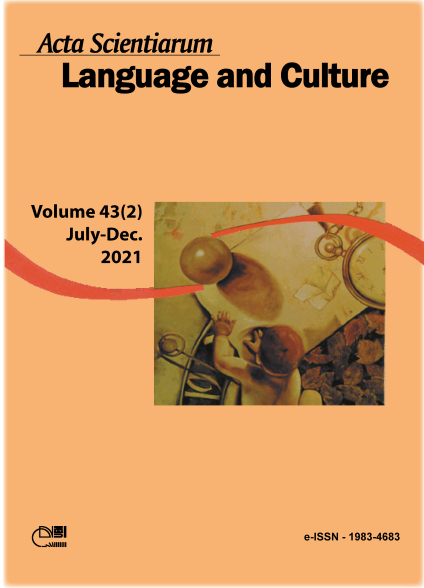Remote emergency classes in Literature and interpassivity: lessons from the pandemics
Abstract
The initial stage of Literature Undergraduate courses during Emergency Remote Classes (ERC) brought many reports of teachers complaining that their students refuse to turn the camera on, creating an empty screen for the docent to address. Such behavior is not a mere question of immaturity. Žižek (2010) might be useful in order to understand it: it is a form of interpassitivity, the act of sending or leaving someone/something else to be passive in my stead, like the canned laughter in a sitcom episode. The canned laughter receives the joke and laughs for me, freeing me from the obligation of doing it. Furthermore, many teachers have previously incurred in a behavior described by Lacan as pseudoactivity. This means engaging oneself in a great number of activities whose goal is, whether one is aware of it or not, to keep the status quo unchanged, or almost unchanged. This text’s aim is to discuss how both behaviors, usually correlated, might work in unexpected ways during the ERC, and why the anxiety created by a virtual classroom’s computer screen full of logins with closed cameras is so devastating to the teacher.
Downloads
DECLARATION OF ORIGINALITY AND COPYRIGHTS
I Declare that current article is original and has not been submitted for publication, in part or in whole, to any other national or international journal.
The copyrights belong exclusively to the authors. Published content is licensed under Creative Commons Attribution 4.0 (CC BY 4.0) guidelines, which allows sharing (copy and distribution of the material in any medium or format) and adaptation (remix, transform, and build upon the material) for any purpose, even commercially, under the terms of attribution.
Read this link for further information on how to use CC BY 4.0 properly.




















6.png)









